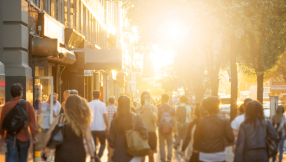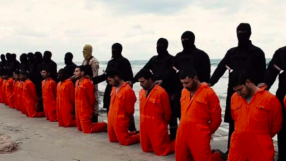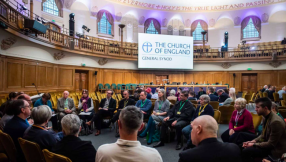In September 2015 the pictures of three-year-old Aylan Kurdi lying dead on a Turkish beach prompted a groundswell of public concern for the plight of refugee children. Britain pledged to receive 20000 refugees over five years from the regions surrounding Syria. Many of those to be given sanctuary, said then Prime Minister David Cameron, would be children; it would be the 'modern equivalent of the Kindertransport', which saw 10,000 unaccompanied Jewish refugee children welcomed to the UK in 1939 to escape the Nazis.
Eighteen months later, only 200 unaccompanied refugee children have arrived in the UK from Europe and the current government has decided to receive only 150 more children through this route.
Reasons given include the lack of capacity in the system, the exacerbation of the situation by creating 'pull factors' that would encourage more children to make the perilous journey, the children are in 'safe countries' in Europe so don't need our help, it is better to give money to the region than to help children come here. However, I believe there are serious flaws in all of these arguments.
There is no lack of capacity
Britain has the capacity to care for far more than 350 unaccompanied refugee children. But the government says that it has asked local authorities and they have told them that there is no capacity. I don't think this is a fair methodology. Firstly, local authorities are in financial difficulties because of government withdrawing funding. But there is a resettlement budget – the government has committed £2 billion of Department of International Development funds to the refugee crisis. If local authorities had access to that funding they would not say they had no capacity. Instead the government wishes to spend most that money on aid in camps rather than investing in infrastructure to help local authorities help refugee children.
Secondly there is capacity in people willing to help. My charity alone has been approached by 14,000 people who want to start the process to be approved as foster carers for refugee children and young people. This incredible response to the refugee crisis has occurred without a national advertising campaign or any government funding. It proves that civil society is willing to step up and help.
Thirdly, there is emotional capacity. I have spoken personally to heads of social services, social workers, local councillors, foster carers and families who are very keen to do all they can to respond to the urgent need to welcome refugee children and ensure their safety and wellbeing. Andy Elvin, who heads up the charitable fostering agency TACT, argues that this is an 'egregious attempt to blame local authorities for a decision that has been wholly made in the Home Office, which has made no reasonable effort to examine what capacity there is in the system'.
There is no pull factor
Some have argued that by helping refugee children in Europe to find safety we will encourage more children to make the dangerous journey. A joint briefing paper produced by Save the Children and United Nations High Commission for Refugees and Unicef stated that 'there is no evidence that relocation schemes act as a pull factor'. Indeed quite the opposite: 'Safe and legal routes to the UK for those seeking asylum disrupt the people traffickers who seek to profit from smuggling desperate people across borders.'
Imagine this 'pull factor' logic was applied to any other part of social care. Imagine as a foster carer I decide not to welcome a child who has been abused or neglected into my care because this will create a pull factor where more parents will abuse or neglect their children. Imagine the fire service decides not to respond to 999 calls because it would encourage more people to start fires.
The 'pull factor' argument is not being used by the experts in refugee support UNHCR or UNICEF because it has no evidence base to support it and is morally spurious.
Push factors are more important than pull factors
When I have spoken with refugees I have only ever heard the push factors that have made them leave their homes behind. Bombings, terror attacks, the conscription of their sons into ISIS or Assad's army, the raping of their daughters. Those factors would make me leave my home too. When I spoke to refugees in a camp in Lebanon, that did not feel secure, safe or welcome either. The camps did not provide sufficient protection against the cold of winter, or offer their children the education they needed. This is echoed in countless testimonies from refugees. It is the push factors away from terror that motivate refugees, not any alleged pull factors.
Children are not safe in mainland Europe
According to Europol and Save the Children, there is a high risk of refugee children being trafficked, abducted, sold into slavery or prostitution. Europol has warned that 'at least 10,000 unaccompanied children had gone missing since entering Europe and that minors are being targeted by pan-European gangs for sex abuse and slavery'. Save the Children suggested that taking responsibility for 3,000 of the unaccompanied children would be a fair contribution for the UK to make. The problem is that as unaccompanied children make their way across Europe they have been ignored and abandoned by some European countries. In other countries the local authorities have been overwhelmed by the sheer numbers of unaccompanied children and so have not been able to give them the help or assistance that they need.
We have not taken our fair share
According to Robert Goodwill, the Minister of State for Immigration, in 2016 'we transferred over 900 unaccompanied asylum-seeking children to the UK from Europe. This included more than 750 from France as part of the UK's support for the Calais camp clearance.' Of these 900 children 700 of them had the legal right to be in the UK to be reunited with family members through the Dublin Convention. To claim credit for welcoming these children is like a police officer claiming benevolence because he didn't arrest innocent people.
Lord Dubs, who was himself evacuated to the UK through the Kindertransport of 1939, has asked for the UK to take 3000 unaccompanied refugee children. This was deemed to be the UK's 'fair share' as calculated by Save the Children when factoring in our population, GDP and the numbers of lone refugee children in Europe.
We may be leaving the EU but we still have neighbourly responsibilities
Many people have argued that Britain leaving the European Union is not about xenophobia and racism. However there has been a marked increase in racist attacks since the Brexit vote. The unhelpful language perpetuated by UKIP campaign to leave the EU often stigmatised immigrants using dehumanising language about them such as calling them 'a flood', 'a plague' and 'a menace'. It is time for the true voice of Britain to show itself. If Brexit was not about racism and protectionism then now is the time to show it. Prime Minister Theresa May stated that Brexit will not mean we retreat from the world. According to Conservative MP Heidi Allen, 'fulfilling the Dubs amendment would be a testament to that ambition. In my heart, I know we are still an outward looking, compassionate global leader and we are better than this.'
Principle, not appeasement, should determine our policy
A hard line on receiving refugee children looks like an appeasement strategy to help our government shore up potential UKIP voters. But this is unnecessary. A Daily Mail editorial in April 2016 stated:
'But while we understand the arguments for hardening our hearts, we believe that in the exceptional circumstances of this crisis, it would be wrong to do so. True, we have no legal or treaty obligation to lift a finger to help. But our moral and humanitarian duty cannot so easily be shrugged off... we believe that the plight of these unaccompanied children now in Europe — hundreds of them on our very doorstep in the Channel ports of France — has become so harrowing that we simply cannot turn our backs. It is not their fault, after all, that they've been sent halfway round the world alone to search for a better life, often after seeing family members slaughtered."
Not a lot has changed for the refugee children since the Daily Mail wrote its impassioned plea. Hardening hearts was not the right solution then and it is not the right solution now.
Empathy is not irrational and rationality is not unbiased
Some that to welcome refugee children to the UK is to allow our emotions to override our rationality. But human beings are integrated emotional and psychological and rational beings. Our rationality is always interacting and influenced by our emotions. For example scientists talk about their passion for discovery. Designers like Steve Jobs talk about being motivated to create by their desire to make a dent in the world. So many of our finest intellectual achievements are attributable to the interplay of emotion and rationality. To rubbish an argument based on someone's emotional reaction to the situation is disingenuous. If someone is empathically motivated to care for refugees, this does not mean that their rationality is dysfunctional.
Great Britain has a proud heritage
Over the centuries Britain has had a proud history of welcoming refugees, including Dutch Protestants fleeing persecution in Europe (1560-1575) and Jews escaping persecution in the Netherlands (1665). Thanks to them we have fish and chips, among other national treasures. 100,000 French Protestants were received into the UK escaping from Louis XIV in France (1685-1700) – and seven of the 24 founders of the Bank of England were Huguenots. Fleeing revolutions in Europe, many republicans and liberals sought sanctuary in Britain including Karl Marx and Victor Hugo ( 1848-1880). Tens of thousands of Russian Jews fled pogroms and sought sanctuary in Britain.
At the end of the 19th century, more than 200,000 eastern European Jews had arrived in the UK and settled in towns such as London, Leeds and Manchester (1880-1914). In 1914-1918 during the First World War more than 250,000 Belgian refugees were welcomed to the UK. Statistically speaking, each of us is probably related to one of these recipients of welcome to the UK. It is a heritage we need to acknowledge, and a heritage we need to continue.
This is Great Britain, not Little Britain
We have become used to the fact that we are facing the biggest humanitarian disaster the world has seen since the second world war. Our response needs to at least proportionately match the scale of the need and the size of our capacity. We are the fifth largest economy in the world and yet we have contributed virtually nothing to the lives of vulnerable unaccompanied children caught in this disaster. It is in a crisis that we often demonstrate who we really are and this crisis is one where we can demonstrate that Britain truly is Great, not just that we have a great history or great potential.
Maybe your arguments for why we should receive refugee children are different. Maybe you think the UK is following in Donald Trump's footsteps and building walls when we should be opening doors. Maybe your family has received welcome and refuge. Maybe you think the UK should take responsibility for the mess it caused in the Middle East in the first place. Maybe you wonder how a rich nation like ours can live it with itself when it lets vulnerable children die.
One of my major motivations is that I believe every person on the planet matters to God and that vulnerable children in particular are especially precious to him. He calls himself a father to the fatherless. So I am motivated by my Christian faith to make sure that that children receive the love and care that they need. Whatever your arguments and motivations, it's time to get busy.
In the House of Commons on Thursday there is a debate scheduled about the closing of the Dubs route to refugee children. It's not too late to take action:
Share this article on social media
Write to your MP – but remember they are likely to give some of the standard answers about the mythical 'pull factors' or 'capacity'.
When you send your email or letter screengrab it and share it on social media. Copy in @krishk and @home4gd so we can see how many of us are doing this. When you get a reply, post that on social media too.
Dr Krish Kandiah is founding director of Home for Good, a charity working to find foster parents for refugee children, children in the care system and adoptive families for children in the UK.













